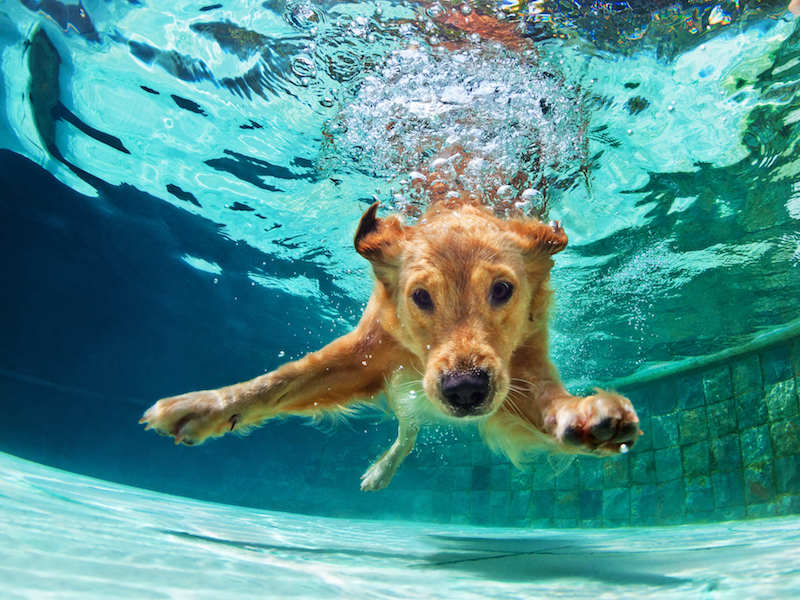
There are a lot of different things that can damage the delicate that makes a hearing aid function the way it does, but few have the impact of water. In fact, you could call moisture kryptonite for hearing aids. Even if you already know that and take care to protect your investment from the shower, pool, or a good face washing, chances are you are missing the most common reason for water damage in hearing aids: humidity.
Permanent damage is done by invisible moisture. It’s time to understand more about why humidity is a negative thing for hearing aids.
What is Humidity?
Even though the word humidity is very common, what does it actually mean? PBS describes humidity as water molecules in the air. When presented as a percentage, for example, the relative humidity is 40 percent today, it refers to the amount of water vapor in the air compared to what air could hold. The larger the percentage, the wetter everything feels.
Humans are very sensitive to humidity because sweat is the most efficient way to cool the body. When you sweat it evaporates into the air, but that doesn’t happen as fast when the humidity level is high. Electronics are also susceptible to humidity and that is why it has such a detrimental effect on hearing aids.
Why Electronics Have difficulty with Humid Weather
Too high or, too low, humidity can influence your hearing aids. When water vapor percentages are high condensation can collect on the delicate elements that make electronic devices function, and low humidity can lead to brittle core materials.
Hearing aids rely heavily on internal electronics to work. Newer digital hearing aids use a sophisticated signal processing chip to control noise. It’s what is behind elegant functions like:
- Noise reduction
- Anti-feedback
- Targeted listening programs
- Digital sound streaming
Moisture can accumulate within the hearing aid when humidity is high and ruin that component. It can corrode elements inside the casing and destroy batteries as well. It’s the same as throwing your hearing aid in a tub of water.
Dealing With Humidity
Water resistant models are currently on the market. Having this feature doesn’t mean you can go swimming with your hearing aids in place, but it does offer some protection against humidity and other weather-related issues such as getting caught in an unforeseen rainstorm or even sweat when you work out.
When it’s very humid try to cut down on indoor water vapor by utilizing a dehumidifier. It’s not just your hearing aid that will benefit, there are health benefits, and other electronics in the home will also be protected. Dehumidifiers reduce the risk of mold, mildew and dust mites, so everyone breathes a little better, too. Although a house or room dehumidifier will help protect your hearing aids, it’s not enough. There are a few other things you can and should do.
Consider buying a dehumidifier designed especially for hearing aids. They come at all costs levels. Drying kits rely on silica gel crystals to protect the electronics. You put the device in the dehumidifier for a couple of hours to eliminate moisture. There are also storage containers that dry hearing aids out each night as you sleep. In a pinch, you could use a bag of uncooked rice to remove moisture.
Don’t forget to leave the battery door open when you store your device. When you expose the battery and inner elements to air by leaving the door open, condensation can evaporate by itself. Don’t just do this in the summer, do it all year round.
Always store your hearing aids in a cool, dry place. On the table in the sun, in the glove compartment, or in a hot room are examples of where not to store your hearing aids.
Other Moisture Concerns
Air vapor is not the only moisture that can damage hearing aids. Don’t forget to think about other types of wetness like:
- Don’t touch your hearing aids with hands that are still moist from lotion.
- Find a safe place to store your hearing aids if headed for the pool or beach.
- When exercising wear a sweatband. It’s a good practice whether you wear your hearing aids when you workout or not. Sweat in your ears can cause problems later.
- Check surfaces before you put your hearing aid down. You don’t want to place it in a wet spot left by a glass or coffee cup.
Treat your hearing like the valuable asset that it is. Keep in mind how moisture can damage your hearing aids and make sure to prevent water from getting in them. If your hearing aid already has water damage make an appointment for service with a hearing aid specialist.
